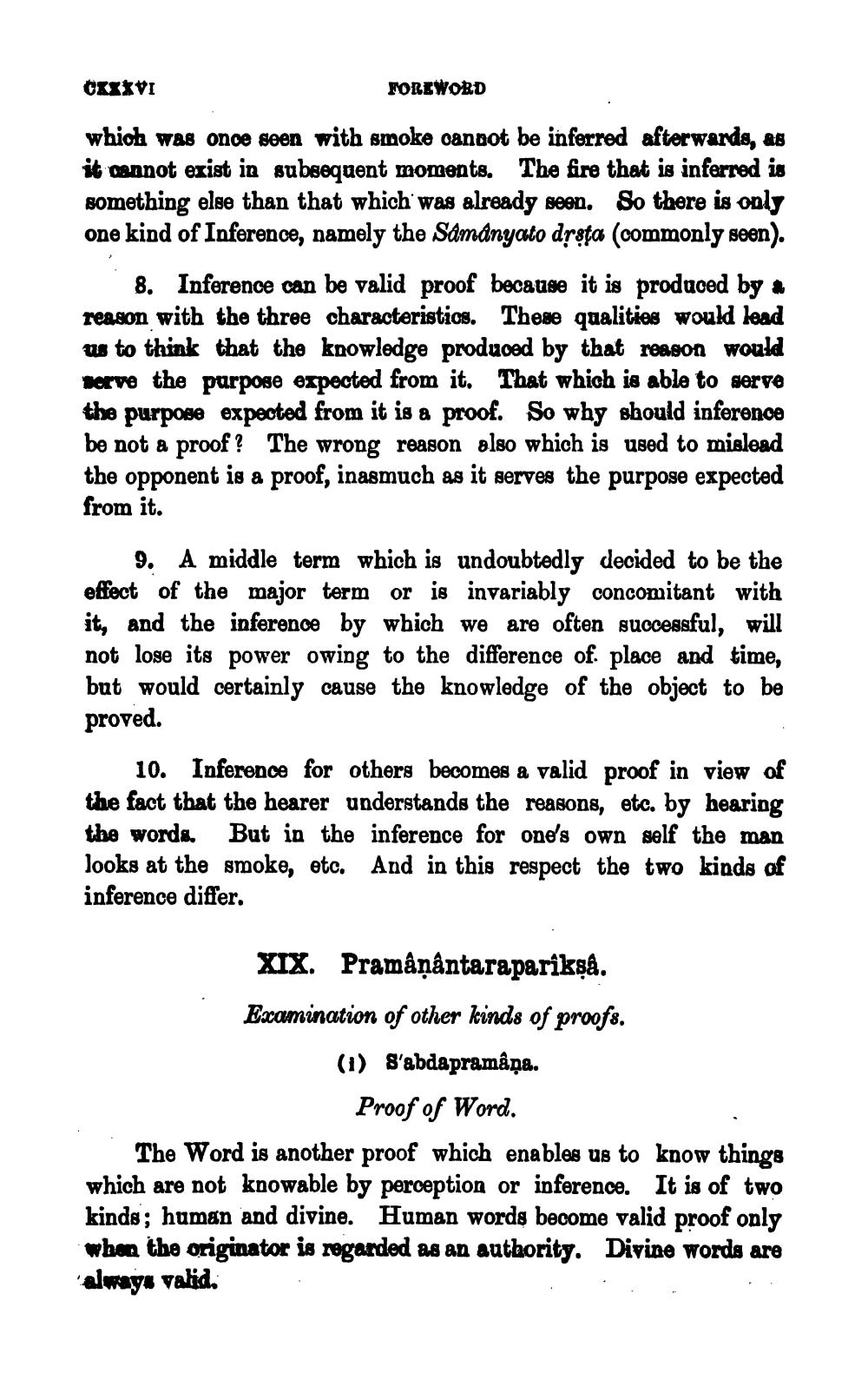________________
OKSIVI
FOREWORD
which was once seen with smoke cannot be inferred afterwards, as it cannot exist in subsequent moments. The fire that is inferred is something else than that which was already seon. So there is only one kind of Inference, namely the Samanyato drsta (commonly soon).
8. Inference can be valid proof because it is produced by a reason with the three characteristics. Those qualities would lead us to think that the knowledge produoed by that reason would serve the parpose expected from it. That which is able to serve the purpose expected from it is a proof. So why should inference be not a proof? The wrong reason also which is used to mislead the opponent is a proof, inasmuch as it serves the purpose expected from it.
9. A middle term which is undoubtedly decided to be the effect of the major term or is invariably concomitant with it, and the inference by which we are often successful, will not lose its power owing to the difference of place and time, but would certainly cause the knowledge of the object to be proved.
10. Inference for others becomes a valid proof in view of the fact that the hearer understands the reasons, etc. by hearing the words. But in the inference for one's own self the man looks at the smoke, etc. And in this respect the two kinds of inference differ.
XIX. Pramâņántarapariksa. Examination of other kinds of proofs.
(1) s'abdapramâņa.
Proof of Word. The Word is another proof which enables us to know things which are not knowable by perception or inference. It is of two kinds; human and divine. Human words become valid proof only when the originator is regarded as an authority. Divine words are always vatid.




